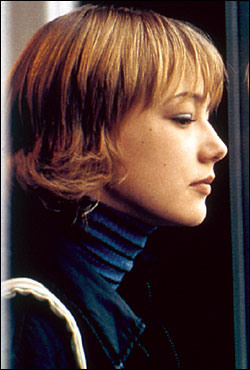In today’s wrecked landscape of movies and criticism, it’s almost impossible to convey the electricity that came every week with Pauline Kael’s reviews. She was the film voice at The New Yorker from 1968 until Parkinson’s forced her retirement in 1991; she died last week at the age of 82. Rereading her prescient, pungent, infinitely quotable reviews gives some idea of her breadth and style but not of the heat she generated. She just damn well took your breath away, especially during the ’70s, when people opened their New Yorkers with, “What’d Pauline say?”
You read not just to learn (or be outraged) but for her singular voice. Believe me, for writers who found their footing in the 1970s and ’80s, the hardest thing was to not sound like her. The field is still littered with writers who appropriate her trademark adjectives (“druggy,” “logy,” “loopy”) without a scintilla of the mind that minted them.
At a lecture she gave in Berkeley in 1970, the shock for me was that she spoke just the way she wrote. For an uninterrupted hour and a half, she faced the huge, hungry audience without a lectern, one hand holding tight to a handkerchief. Only up close could you see that the hand that reached for a water glass once or twice trembled slightly, like the ripples of a racehorse nerved up for the gate.
“Pauline Kael has the shortest chute from her brain to her mouth than anyone I’ve ever heard,” said the awed writer I’d come with. She tapered out of her readers’ lives gradually. But for the hundreds of writers whom she befriended, ones still gathering their powers and ones who more or less have theirs, our loss is incalculable.
More than anything, she nurtured, chivied, brought out the best. Call her and she’d ask what you had seen, or read; invariably she was wickedly funny. When I mentioned that I’d finally met Gregory Peck and was stultified, she chuckled. “We’d talk after classes at Berkeley,” she said, “and he looked like that and he had that voice, and he was so dull my eyes kept sliding right off him.”
You learned to button what you knew would be an unpopular opinion, unless you wanted to unleash her little descending moans of pain. Worthy films bored her blue; between The Eyes of Laura Mars and Tender Mercies, give her a stylish ice-pick murderer every time.
When I whimpered one night that a piece was going slowly, she suggested, “A little scotch never hurt a bit.”







